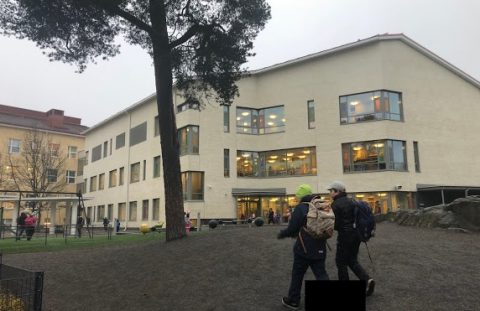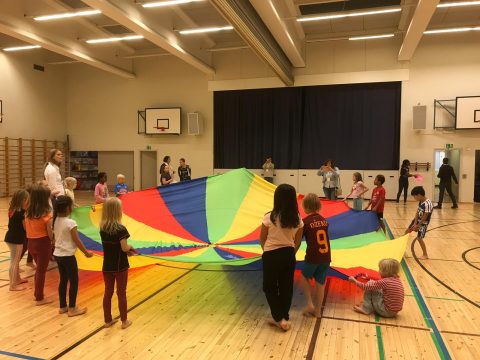How can we help teachers to act as innovators, part 1/3: Trust
Teachers are often expected to act as innovators in the society. Education is of vital importance for the development of society and teachers are awaited to promote that development by new and innovative solutions in education.
Finnish education is world-famous for its high quality and Finnish teachers are known to constantly develop the education. This continuous development has brought Finland excellent results: Finnish students have been in the top of international rankings for over ten years (OECD 2016). What makes Finnish education so successful? Why are Finnish teachers so development-oriented? We tackle this question in three consecutive blog posts.
Understanding Finnish education requires the comprehension of few basic principles. These principles also guarantee Finnish teachers the circumstances to develop education the best way they can. Innovation and development always requires freedom. This is also true with teachers. What makes the Finnish education so successful and Finnish teachers so innovative is the autonomy, trust and collaboration that they experience in their work.
Trust and responsibility
 The thing that usually strikes foreign visitors the most in Finnish educational system is the trust. Trust can be found at every level of Finnish education system. Parents trust the teachers and the whole school system. Politicians and authorities trust education providers, education providers trust principals and teachers, principals trust their teachers, teachers trust their students and students trust their teachers etc.
The thing that usually strikes foreign visitors the most in Finnish educational system is the trust. Trust can be found at every level of Finnish education system. Parents trust the teachers and the whole school system. Politicians and authorities trust education providers, education providers trust principals and teachers, principals trust their teachers, teachers trust their students and students trust their teachers etc.
It is noteworthy that in Finland there are practically no private schools, but all the schools are public. This has a special effect on the teacher-parent relationship. Since parents don’t pay tuition fees they are not considered as clients but partners. In Finland there is a concept of “upbringing partnership” to describe that school and parents are on the same side aiming to foster the child together. This idea of shared goals and partnership sustains the very existence of trust. Common aims are best pursued with mutual trust and respect. Finland’s administrators and parents trust the nation’s teachers because they respect their professionalism.
The trust is very much seen in the administration of education as well. Finland’s National Board of Education gives the national core curriculum, which determines the outlines of education in Finland alongside with other legislation. The execution of curriculum is the task of the local administration and educational institutes and the National Board of Education trust that the local parties play their role well.
There is no school inspection in Finland, but quality assurance is based on steering, collaboration and process evaluation instead of controlling. Steering is done through information, support and funding. The system relies on the proficiency and conscientiousness of teachers and other personnel. Authorities trust that giving resources and guidance to schools and teachers, they find a way to solve the problems.
 Inviting teachers and principals to participate in school development has had an enormously positive impact on the Finnish education sector. Teachers can see that the system believe that schools and communities are the places where decisions concerning the curriculum and overall arrangement of schooling should be made. Each school can design its own change strategy with mission statements, vision, implementation methodologies, and schedules.
Inviting teachers and principals to participate in school development has had an enormously positive impact on the Finnish education sector. Teachers can see that the system believe that schools and communities are the places where decisions concerning the curriculum and overall arrangement of schooling should be made. Each school can design its own change strategy with mission statements, vision, implementation methodologies, and schedules.
In Finland there is no school inspection or teacher assessment. It is interesting that Finns practically never use the word “accountability” referring to education. In Finland teachers and schools are responsible for their work, not held accountable for their actions. Walker (2017) makes a good distinction: “accountability” is basically fear based where as “responsibility” is trust based. Being responsible of your work is an inner demand, posed by the education community and the person him-/herself. It is knowing your work has consequences and other parties have expectations for it. Responsibility is an inner calling to do your work as good as possible. Accountability on the other hand is always placed on you by someone else. This operator who holds you accountable for your actions is superior to you and therefore has the final responsibility of your work as well.
Innovation thrives when people are trusted. Then they don’t have to be afraid of failures and they have the courage to experiment new things. Experiencing mistrust makes people fearful of experimenting new ideas. Playing safe is a wise strategy when you can be punished of your failures. Trust is the first element of promoting innovation and development ecosystem in education.
Read also:
Part 2/3 Autonomy
Part 3/3 Collaboration

